READFIELD — Leane Reed’s favorite part about her berry farm is “eating the berries.”
It seems like a simple answer for someone that runs a farm and has done so with her husband, Richard, for nearly 20 years. But running a raspberry farm is anything but simple — it can be very labor intensive, Reed said.
Leane, 75, and Richard Reed, 76, the namesakes for R&L Berry Farm in Readfield, started their U-pick raspberry season two weeks ago, which was nearly three weeks ahead of schedule.
“When the heat hits, the heat and the rain, oh my word, it brings them out like crazy,” Leane Reed said. In a season with regular weather, the raspberries would be due shortly after the Fourth of July.

R&L Berry Farm co-owner Leane Reed, center, talks to customers Tuesday at the Readfield business. Joe Phelan/Kennebec Journal
The couple planted the first raspberries in 2002, and then planted more in 2003 to create a span of 18-rows of raspberries. Later in the year they will have high-bush blueberries and blackberries ready to be harvested and the farm also produces raw honey products.
One of the main reasons why the Reeds chose raspberries is because of how few farms offer them.
In Maine, typically strawberries are the most-common U-pick berry, with high-bush blueberries close behind for do-it-yourself.
David Handley, the vegetable and small fruit specialist at the University of Maine Cooperative Extension, said based on surveys the cooperative extension has done with farms that offer U-pick, at the end of the season around 90% of sales for strawberries will be from U-pick, same as with high-bush blueberry. But for raspberries, around 50% to 60% of sales are from U-pick in comparison to already-picked quarts.
“Raspberries typically come in later (harvest-wise) than strawberries, and by then, some people are done with their share of U-pick,” Handley said. “Raspberries come out later, when it’s really hot in the summer, most people think, ‘It’s time to go to the lake,’ and, they are also pricier.”
In Kennebec County, the only other place to pick raspberries other than R&L Berry Farm is Chick’s Apple and Berry Farm in Monmouth, although it is offered in other parts of the state.
Reed predicts the blueberries will be ready to pick in August and blackberries are usually ready around fall.
The Reed’s got into raspberry farming on recommendation of their pastor, but first, they started as a deer farm, by raising red deer, a type of Elk from Europe.
Leane Reed joked that they did not do enough research before buying them and the pair ended up with a “whole field full of pets.” They sold the deer, then one day at church, their pastor suggested they grow raspberries since not many people in the area grew the crop.
“We planted too many to grow, we were ignorant at the time, not knowing how labor-intensive it was but now that we are into it, we really enjoy it,” Reed said.
To grow raspberries, part of the process is to thin out and space the canes that grow from the red raspberries in the continuing years of their growth to give them space and to let the light in to dry the plant. If the plant gets too wet, from watering, dew, or rain, it can produce fungus.

Charlotte Gift, 8, picks raspberries Tuesday at R&L Berry Farm in Readfield. Joe Phelan/Kennebec Journal
Bugs also love raspberry bushes, namely, the Spotted Wing Drosophila, an invasive type of fruit fly that comes out later in the summer and targets ripening fruit, said Handley. Strawberries harvest too early to catch the bug and the blueberry skin is hard enough where it keeps the bug out, for the most part. If one gets into a raspberry, they become very soft and mushy.
“I have more people get into raspberries and get out of growing them, than other crops,” Handley said.
People may love eating raspberries, but they can require a lot of hand labor that is not available for farms and was a problem long before the labor shortage of the past few years. Handley said that farms that use equipment to harvest raspberries often can only use the berries if they plan to freeze them; because of how soft and delicate they are, they can bruise, or become soft.
For the very reason of being labor intensive, raspberries often cost more than strawberries and blueberries. R&L charges $4 a pint and $8 a quart for its U-pick raspberries. The farm does not spray its plants, so if the Reeds’ crops are not harvested in time, they can become susceptible to the bugs and mold. Birds, on the other hand, are not too much of a challenge for them.
“The birds can’t do enough to hurt us because they get so full they can’t fly,” she joked.

Amy Gift picks raspberries during a family outing Tuesday at R&L Berry Farm in Readfield. Joe Phelan/Kennebec Journal
If people do not want to pick raspberries, or the other berries, they can purchase already-picked quarts. Reed also sells quick breads made with fruit from their farm, pies, vinaigrettes and shrub, which is her secret recipe. Shrub is a flavoring, in this case, raspberry, that can be added to iced teas, lemonades or other drinks.
U-Pick at B&L Berry Farm is open Monday through Saturday from 9 a.m.-5 p.m., and on Sunday, it’s open 2-5 p.m. so the Reeds can make it to church.
“We thank the Lord for what he’s given us,” Reed said.
Send questions/comments to the editors.


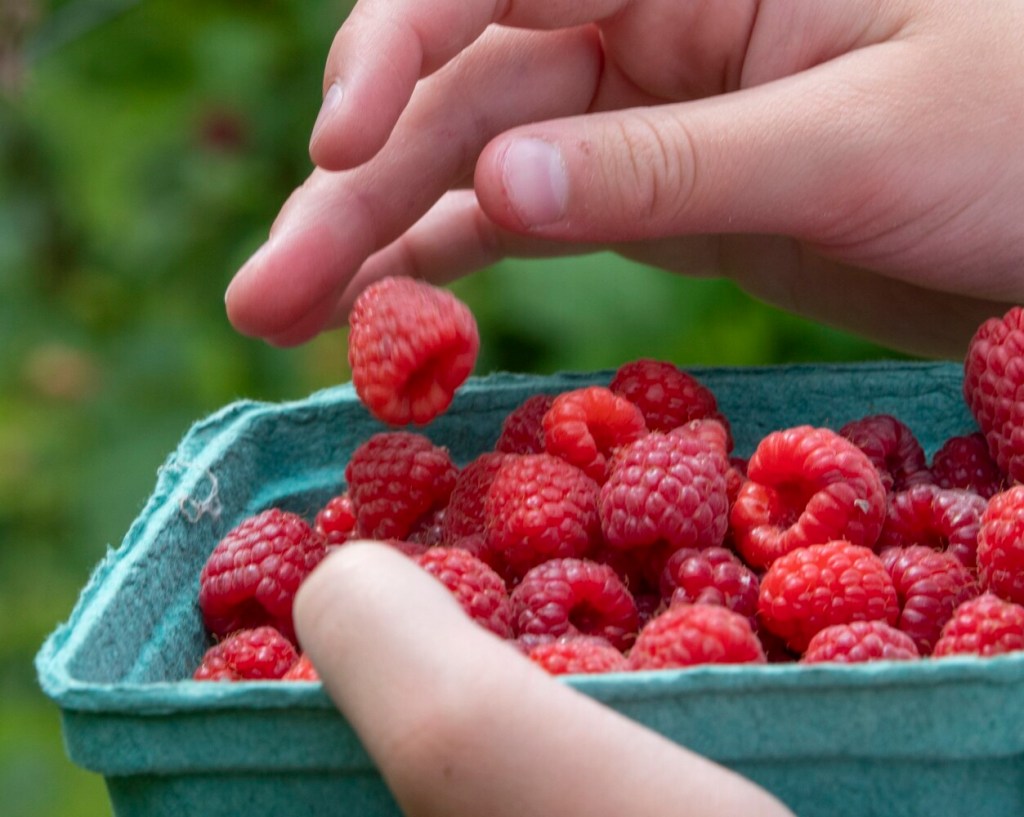
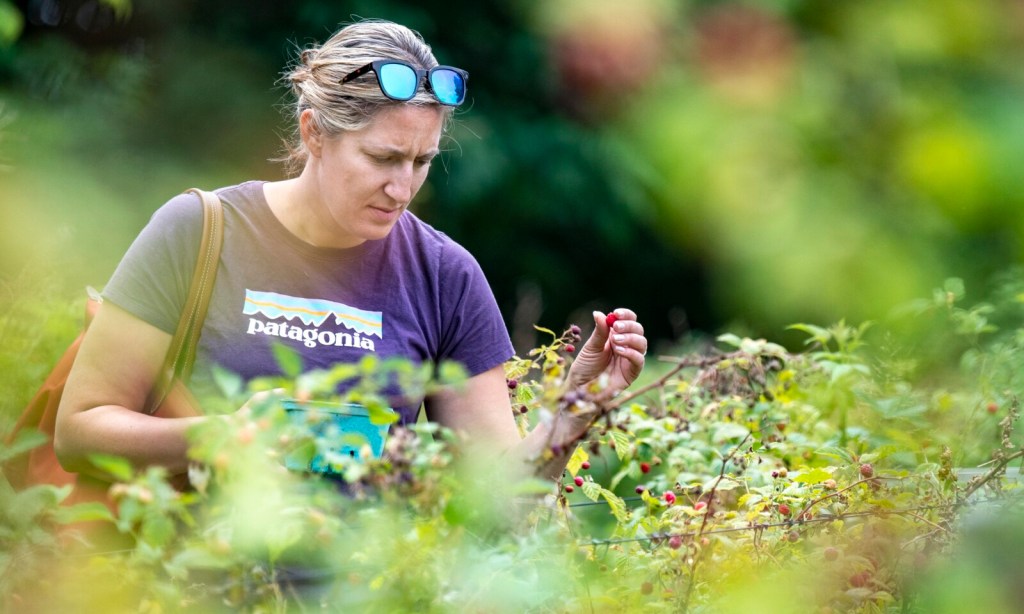
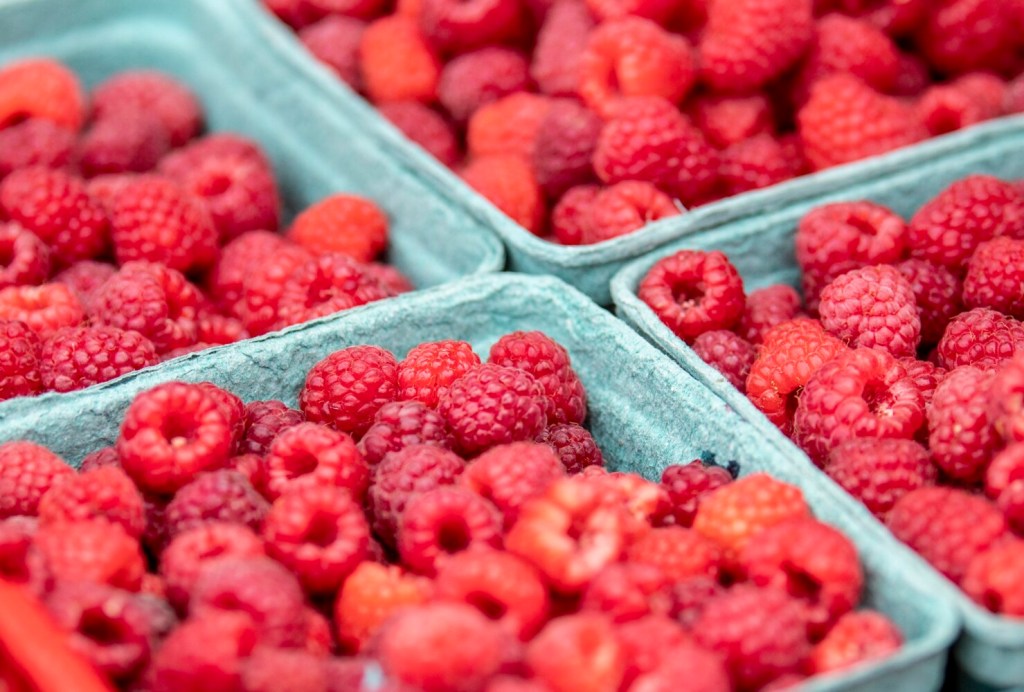
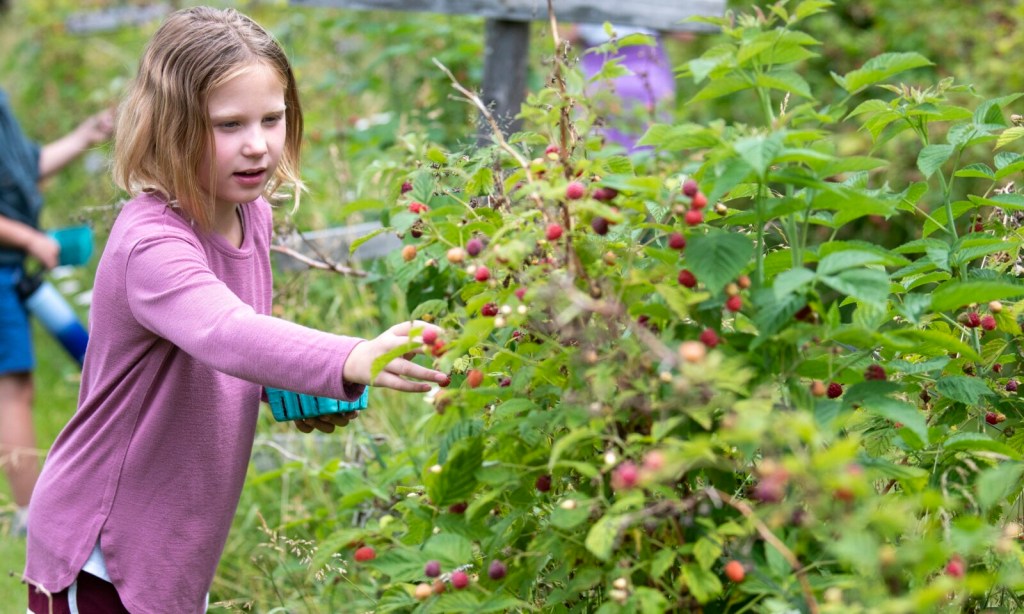
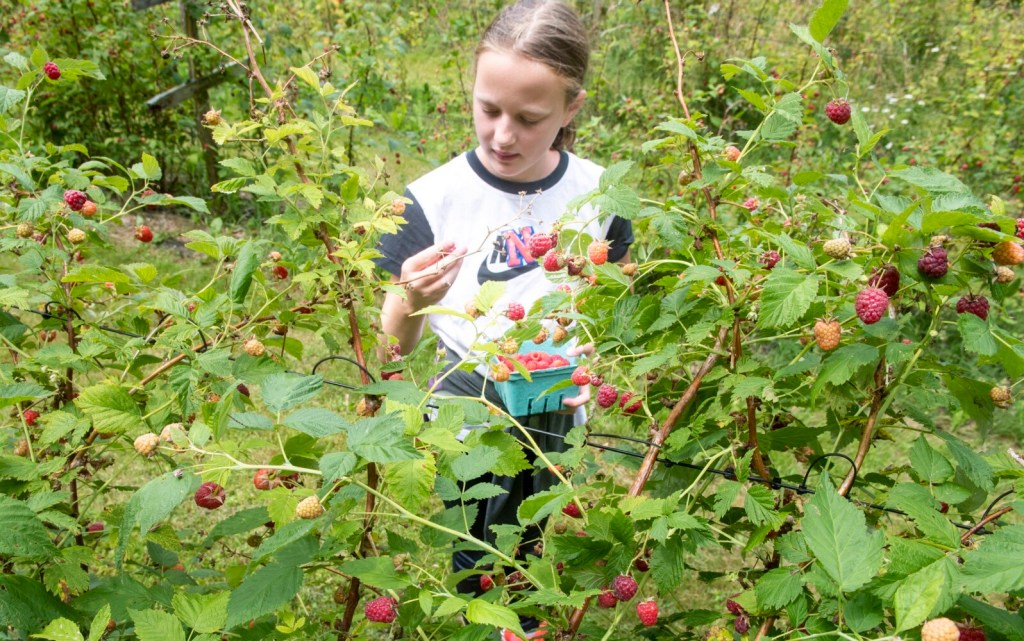
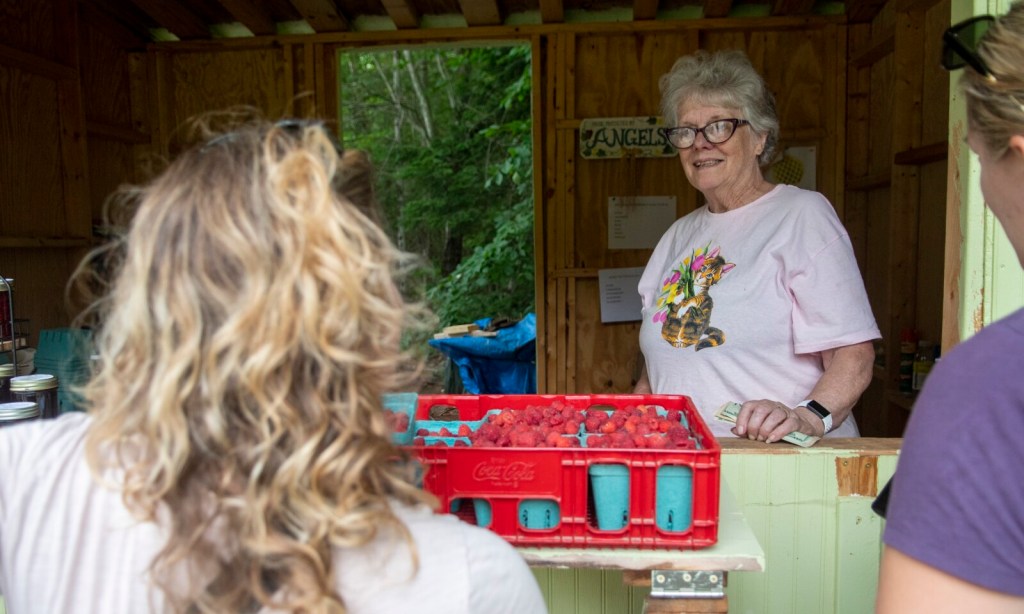
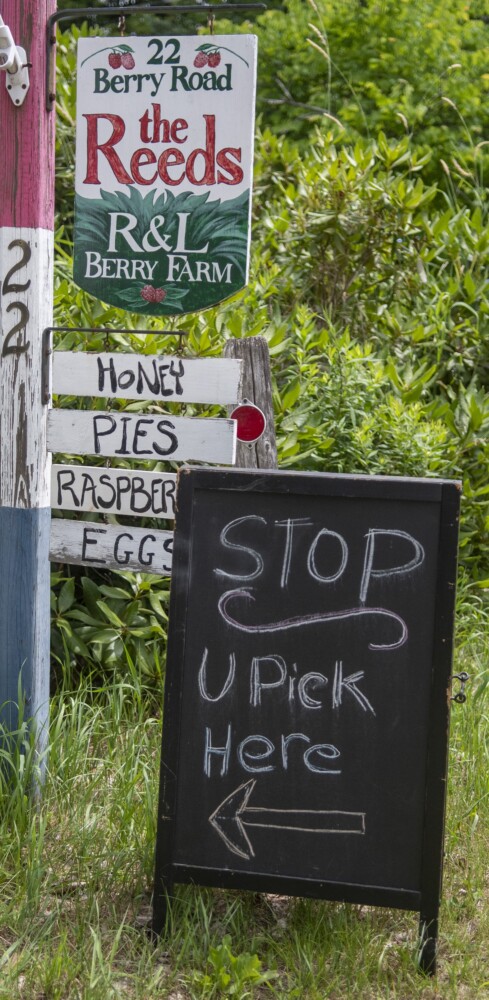

Comments are no longer available on this story